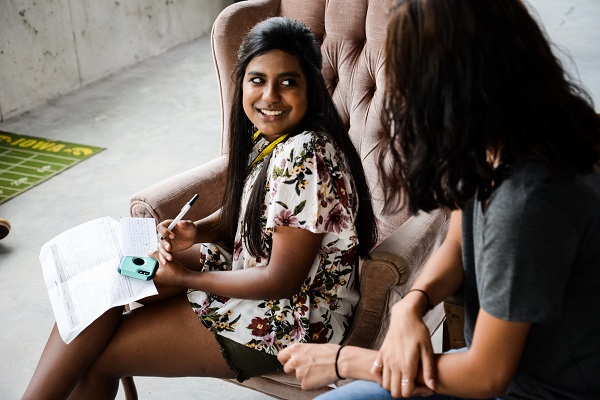FOR STUDENTS & FAMILIES
Academic Year Programs
Academy for Twice-Exceptionality (Grade 12)
The Academy for Twice-Exceptionality strives to ensure that neurodiverse students (specifically those with Autism Spectrum Disorder or who identify as Autistic) have a positive and fulfilling college experience at the University of Iowa. Applications for the 2024-2025 school year are open through January 20, 2024.
Bucksbaum Early Entrance Academy (Grades 10-11)
The Bucksbaum Early Entrance Academy empowers high-achieving students to begin full-time on-campus study at the University of Iowa after their sophomore or junior year of high school. Applications for the 2024-2025 school year are open through January 20, 2024.
Junior Science and Humanities Symposium (Grades 9-12)
Students compete for scholarships and recognition by presenting the results of their original research projects before a panel of judges and an audience of their peers.
- Friday, December 1, 2023: Research proposal site opens
- Wednesday, January 10, 2024 (11:59 PM CST): Research proposal due
- Wednesday, January 24, 2024: Notification of proposal acceptance
- Friday, February 9, 2024: Registration to Attend Symposium
- Monday-Tuesday, February 26-27, 2024: Heartland-JSHS Symposium
Weekend Enrichment (Grades 3-8)
This program is designed to supplement what elementary and junior high students are learning in school and give them a chance to explore their interests – or discover new ones! Our spring session is Saturday, April 20, 2024, with the following classes:
- Coding with Sphero Robots! (Grades 3-6)
- Creative Writing: Mining Our Memories for Effective Storytelling (Grades 3-6)
- Video Game Coding with Bloxels (Grades 3-6)
- Science Explorations: Water Quality Adventure (Grades 6-8)
Summer Programs
Blank Summer Institute (Grades 7-8)
The Blank Summer Institute (BSI) is a one-week residential summer program for Iowa’s most talented 7th– and 8th-grade students as nominated by their schools. Each student selected for BSI will receive a $1,000 Blank Scholarship to cover most of the Institute’s $1,200 costs. Additional financial aid is available if cost is a barrier to attendance.
- December 1, 2023 (5:00 pm CST): Teacher nomination opens.
- February 1, 2024 (by 5:00 CST): Student applications due.
- February 15, 2024: Student notification.
- June 23-28, 2024: Program dates.
Junior Scholars Academy (Grades 3-6)
Junior Scholars Academy (JSA) is a summer commuter program for 3rd-6th grade students who want to dive into a particular topic for a week.
- Applications are open now!
- Session 1: June 17-21, 2024
- Session 2: July 15-19, 2024
Secondary Student Training Program (Grades 10-11)
SSTP is a rigorous, selective, and unforgettable experience for high school sophomores and juniors who are interested in research.
- December 15, 2023 (5:00 pm CST): Applications open
- February 16, 2024 (11:59 pm CST): Application deadline
- April 3, 2024 (5:00 pm CST): Students receive notification of acceptance status
- June 19 – July 26, 2024: Program dates.
Summer Writing Online (Grades 9-12)
Summer Writing Online (SWO) is an immersive, three-week program designed to stretch participants as writers. Instructors include playwright, director and teaching artist Nina Morrison and Iowa Writers’ Workshop graduate Andrew David King.
- Applications are open now!
- July 8–26, 2024: Program dates.























































 When most people think of acceleration, they think of either skipping a grade or moving ahead in a particular subject. But did you know there are at least
When most people think of acceleration, they think of either skipping a grade or moving ahead in a particular subject. But did you know there are at least  Do you have a talented math learner? Be sure to check out the book,
Do you have a talented math learner? Be sure to check out the book, 

